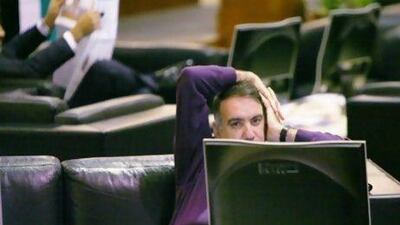Online is on the rise in the Arab world - but for the advertisers who decide the fortunes of digital-media outlets, a "fear factor" still prevails.
Dozens of online media platforms have sprung up in the Arab world, as consumers turn to the Web for news, entertainment and social interactions.
Yet advertising dollars have not kept pace with this mass migration to digital.
In developed markets such as the UK, internet media has already overtaken print in terms of advertising revenues.
But as little as 4 per cent of the Arab world's US$4.5 billion (Dh16.52bn) annual advertising spending goes online, according to industry figures.
Analysts predict that the region's annual spending of around $200 million on digital media will continue to rise.
"Internet advertising has been growing at upwards of 35 to 40 per cent, and I think that will continue," says Jayant Bhargava, a principal at Booz & Company, a consultancy.
But there is still a "fear factor" among advertisers when it comes to digital media, according to two of the region's most prominent advertising executives.
Joseph Ghossoub, the chief executive of the regional communications giant Menacom Group, says this is holding back the Middle East's digital-media industry. "The fear factor … is affecting the growth of digital," he says. "The clients, somehow, are not really jumping on the opportunity, or allowing the agencies to give them what they really deserve."
The Menacom conglomerate, which is part of WPP, controls advertising companies such as Young & Rubicam, Intermarkets and Wunderman in this region.
Mr Ghossoub says some clients are reluctant to use digital media because they do not have the technical infrastructure, they lack capacity to engage with consumers, or do not view it as a tried and tested medium.
"Old habits die hard," he says. "Clients are afraid of embracing the new technology."
Rival advertising firms agree that some Middle East companies are reluctant to use digital media.
"Some of the clients do not understand the language," says Raja Trad, the chief executive at Leo Burnett in the Mena region. "When you start talking digital in depth, there is some fear of continuing."
Mr Trad says digital media still accounts for a only tiny fraction of overall marketing budgets.
"If you look at the total advertising spend in the Mena region, which is around $4.5bn … at best, the digital spend today is at 4 to 5 per cent [of that]," he says. "So I would not call this a revolution, I would call this an evolution."
Both executives say their advertising agencies are spending more on developing digital media than their clients are spending on it.
"Our investment in digital is ahead of the revenue that we have from our clients.
"Knowing that the potential is huge … we will have no choice except to go for digital media."
Print media accounts for about $1.5bn of the Arab world's annual advertising expenditure, with another $1bn going to television. Despite this, Mr Ghossoub says digital media is attractive to clients because advertisers can measure exactly how effective their campaigns are.
"The consumer is getting really into the digital world. It used to be a passive communication. Today, brands have to communicate not only individually, but as a community. In digital, they can see the results."
Some regional advertisers say they are boosting the proportion of marketing expenditure directed online.
The telecommunications operator du devoted 7 per cent of its advertising budgets to digital media in 2010.
Osman Sultan, the chief executive of du, said last week the company planned to boost its spending further.
Du will make "a progressive increase in the percentage of our spend in advertising going digital," Mr Sultan says.
The three executives were speaking at the Digital Media Forum, held in Dubai.
Mr Sultan says the rise of social media has transformed the way the communications industry works.
"Social media just happened five or six years ago. It was a wave, a tsunami that changed everything," he said.
twitter: Follow our breaking business news and retweet to your followers. Follow us

